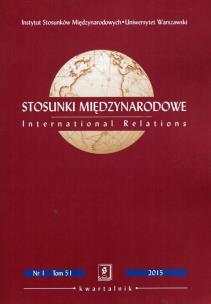- Regulamin
- Koszty dostawy
- Kontakt
- Dziś w ofercie 234 488 produktów
KSIĄŻKI
- Albumy
- Beletrystyka
- Biografie
- Dla dzieci i młodzieży
- Edukacja
- Ekonomia i biznes
- Ezoteryka
- Historia
- Informatyka
- Kalendarze
- Komiksy
- Kryminał i sensacja
- Kultura i sztuka
- Literatura faktu
- Literatura kobieca
- Literatura piękna
- Medycyna
- Nauka języków obcych
- Nauki humanistyczne
- Nauki przyrodnicze
- Nauki ścisłe
- Podręczniki
- Poradniki
- Prawo i administracja
- Przewodniki i podróże
- Psychologia
- Religia
- Sport
- Technika
- Zdrowie i uroda
ZABAWKI
- Artykuły dla niemowląt
- Bączki
- Bujaki i skoczki
- Ciągnij / pchaj
- Dla niemowlaka
- Grzechotki i gryzaki
- Karuzele i pozytywki
- Maty i centra zabaw
- Projektory i lampki
- Sortery i piramidki
- Zabawki
- Edukacyjne i kreatywne
- Figurki
- Klocki
- Lalki
- Pojazdy
- Pluszaki i maskotki
- Sport i rekreacja
- Zabawa w dom
- Zabawki drewniane
- Puzzle
- Do 200 elementów
- 201-500 elementów
- 501-1000 elementów
- Ponad 1000 elementów
- Puzzle 3D
ART. PAP
- Artykuły biurowe
- Artykuły piśmiennicze
- Bloczki i kartki samoprzylepne
- Dziurkacze
- Kalkulatory
- Nożyczki i nożyki
- Skoroszyty
- Teczki
- Wizytowniki
- Zszywacze
- Artykuły szkolne
- Akcesoria szkolne
- Modelowanie
- Notatniki i zeszyty
- Piórniki
- Plecaki i torby
- Pojemniki na śniadanie
- Pomoce naukowe
- Przybory matematyczne
- Przybory rysunkowe
- Upominki i gadżety
- Akcesoria do książek
- Artykuły balowe
- Breloki i zawieszki
- Drobiazgi, różności
- Kubki
- Oferta Świąteczna
- Papeteria, kartki i naklejki
- Skarpetki Many Mornings
- Upominki
GRY
MULTIMEDIA
- Audiobooki
- Beletrystyka
- Biografie i wspomnienia
- Dla dzieci i młodzieży
- Fantastyka
- Filozofia i religia
- Historia
- Literatura faktu i reportaż
- Poradniki
- Sensacja i kryminał
- Filmy DVD/BD
- Animowane
- Biograficzne
- Fantasy
- Horrory
- Komedie
- Romanse
- Science Fiction
- Sensacyjne / kino akcji
- Thrillery
- Muzyka CD
- Alternatywna
- Blues
- Dla dzieci
- Jazz
- Klasyczna
- Piosenka aktorska i poetycka
- Pop
- Rock
- Świąteczna i kolędy
- Akcesoria GSM
- Głośniki
- Kable i adaptery
- Klawiatury
- Myszy
- Słuchawki
PROMOCJE
ZDROWIE
LEGO

Stosunki Międzynarodowe nr 1 Tom 51/2015
Wydawca:
Scholar
EAN:
977020909600551
oprawa:
Miękka
format:
16.5x23.5cm
język:
polski, angielski
liczba stron:
258
rok wydania:
2015
(0) Sprawdź recenzje
Opis produktu
Zasady bezpieczeństwa
W NUMERZE
Edward Haliżak: Wstęp [Introduction]
STUDIA [STUDIES]
Edward Haliżak: Przedmiot, teoria i metodologia nauki o stosunkach międzynarodowych [The Subject, Theory and Methodology of the Science of International Relations], doi 10.7366/020909611201501, s. 11–34;
Dariusz Popławski: Bariery członkostwa Konfederacji Szwajcarskiej w Unii Europejskiej [Barriers to the Membership of the Swiss Confederation in the European Union], doi 10.7366/020909611201502, s. 35–50;
Joanna Starzyk-Sulejewska: Stosunki między Unią Europejską i ONZ – perspektywa teoretyczna i praktyczna [Relations of the European Union with the United Nations], doi 10.7366/020909611201503, s. 51–70;
Rajendra K. Jain: Indian Perception of the European Union, doi 10.7366/020909611201504, s. 71–82;
Manish Thapa: The role of the European Union in conflict resolution in Nepal, doi 10.7366/020909611201505, s. 83–92;
Xiang Zuotao: Ji Wengang, EU’s perceptions in China: Teacher, Co-operator, Competitor and Troublemaker, doi 10.7366/020909611201506, s. 93–106;
Andrzej Szeptycki: The EU in the mirror of the Ukrainian crisis (2013–2014), doi 10.7366/020909611201507, s. 107–126;
Jorge A. Schiavon, Diego Dominguez: Latin American perceptions of Europe and the European Union, doi 10.7366/020909611201508, s. 127–140;
Slobodan Samardžić: Evolution of the relations between Serbia and the European Union, doi 10.7366/020909611201509, s. 141–152;
Martyn De Bruyn: The Transatlantic Trade and Investment Partnership: Dispute Settlement Mechanism, doi 10.7366/020909611201510, s. 153–162;
Anna Wróbel: Ewolucja polityki rolnej Unii Europejskiej i Stanów Zjednoczonych w świetle mierników OECD [EU and US Agricultural Policy in the Light of OECD Indicators], doi 10.7366/020909611201511, s. 163–186;
Jakub Zajączkowski: Wybory parlamentarne w Indiach w 2014 r. – znaczenie dla polityki wewnętrznej i zagranicznej [Parliamentary Elections in India in 2014: Implications for the Domestic and Foreign Policy], doi 10.7366/020909611201512, s. 187–212;
Stanisław Musiał: Maghreb w międzynarodowych stosunkach gospodarczych [The Maghreb in International Economic Relations], doi 10.7366/020909611201513, s. 213–230.
SPRAWOZDANIA [REPORTS]
Barbara Kratiuk, Joanna Starzyk-Sulejewska: Sprawozdanie z konferencji 23 października 2014 r. [Report on the international conference of the Institute of International Relations, UW and the Centre for Europe, UW, The World’s Perception of the European Union, Warsaw, 23 October 2014], s. 231–236.
RECENZJE [REVIEWS]
Edward Haliżak: Justyna Zając, European Union Policy in the Mediterranean: An International Roles Theory Approach, s. 237–240;
Teresa Łoś-Nowak: Edward Haliżak, Jacek Czaputowicz (red.), Teoria realizmu w nauce o stosunkach międzynarodowych, s. 241–246;
Anna Wróbel: Katarzyna Kołodziejczyk, Stosunki Unii Europejskiej z grupą państw Afryki, Karaibów i Pacyfiku. Rola i znaczenie umów o partnerstwie gospodarczym w zakresie handlu i pomocy rozwojowej; s. 247–250;
Joanna Starzyk-Sulejewska: Artur Adamczyk, Dariusz Milczek, Kamil Zajączkowski (red.), Introduction to European Studies: A New Approach to Uniting Europe, s. 250–254;
Andrzej Szeptycki: La Pologne au cour de l’Europe, numer specjalny Questions internationales, septembre–octobre 2014, N° 69, s. 255–258.
CENA:
14,87
zł
Cena detaliczna:
21,00 zł
29%
rabatu
Najniższa cena z ostatnich 30 dni: 14,91 zł
Produkt niedostępny
Uwaga!!!
Ten produkt jest zapowiedzią. Realizacja Twojego zamówienia ulegnie przez to wydłużeniu do czasu premiery tej pozycji. Czy chcesz dodać ten produkt do koszyka?


Wybierz wariant produktu
